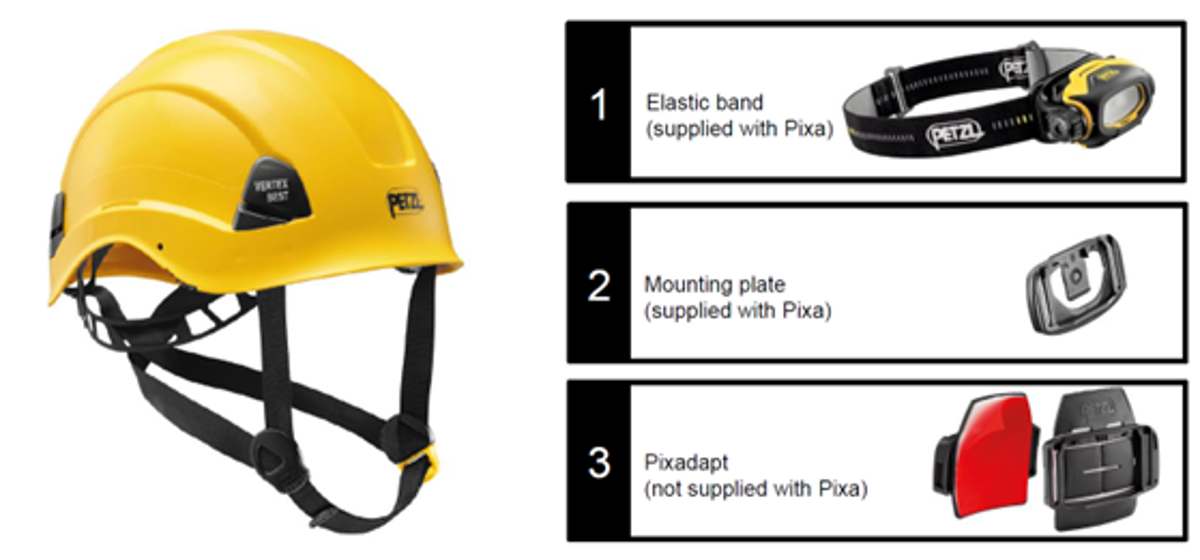Petzl Pixa lights as potential dropped objects
- Safety Flash
- Published on 12 November 2019
- Generated on 14 July 2025
- IMCA SF 26/19
- 2 minute read
Jump to:
A Member has noted that certain headlamps supplied for use with certain helmets, as used extensively for working at height in the offshore renewables sector, could come loose and fall.
This is owing to a supplied mounting plate which does not correctly fit, leading to the possible consequence of a light mounted on the helmet using the mounting plate not being securely fixed to the helmet, and thus becoming a potential dropped object.
The lamps and helmets in question are the Petzl Vertex helmet and Petzl Pixa light, supplied by the manufacturer Petzl. Petzl Benelux has been contacted on the topic. Petzl is currently testing an improved version of the mounting plate and stated that they expected to start production at the beginning of November, and first deliveries are expected mid-November. From that moment all new Pixa headlamps should fit the Petzl helmets perfectly.

Petzl Vertex climbing helmet with light loose
For all climbing activities, specialised personal protective equipment (PPE) is used; for example, Petzl Vertex climbing helmets supplemented with a Petzl Pixa light. This light can be mounted on the helmet in one of three ways:
- Using the supplied elastic band around the helmet.
- Using the supplied mounting plate, which holds in the slot at the front of the helmet.
- Using the Pixadapt, that glues on top of the helmet (not supplied with the light).
Petzl Pixa Light As Dropped Object
With newer Petzl Vertex helmets and Petzl Pixa lights, the supplied mounting plate would not solidly click in the helmet slot. After inserting the mounting plate, it would slowly creep up, out of the helmet. As a consequence, Pixa lights mounted on the helmet using the mounting plate were NOT securely fixed to the helmet and are a potential dropped object.
What actions should be taken?
Check your Petzl Vertex helmet and Petzl Pixa light to ensure the light is properly fixed and does not come off your helmet. If the mounting plate (method 2) does not fit properly, you may still use the light:
- By method 1: using the elastic band that is supplied together with the light, or
- By method 3: ordering the Pixadapt and fixing the light on top of your helmet, following Petzl’s installation instructions.
IMCA Safety Flashes summarise key safety matters and incidents, allowing lessons to be more easily learnt for the benefit of the entire offshore industry.
The effectiveness of the IMCA Safety Flash system depends on the industry sharing information and so avoiding repeat incidents. Incidents are classified according to IOGP's Life Saving Rules.
All information is anonymised or sanitised, as appropriate, and warnings for graphic content included where possible.
IMCA makes every effort to ensure both the accuracy and reliability of the information shared, but is not be liable for any guidance and/or recommendation and/or statement herein contained.
The information contained in this document does not fulfil or replace any individual's or Member's legal, regulatory or other duties or obligations in respect of their operations. Individuals and Members remain solely responsible for the safe, lawful and proper conduct of their operations.
Share your safety incidents with IMCA online. Sign-up to receive Safety Flashes straight to your email.